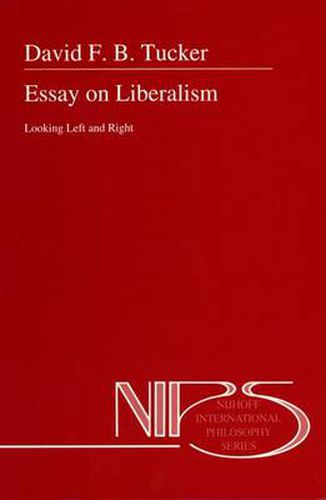Readings Newsletter
Become a Readings Member to make your shopping experience even easier.
Sign in or sign up for free!
You’re not far away from qualifying for FREE standard shipping within Australia
You’ve qualified for FREE standard shipping within Australia
The cart is loading…






This book argues that we would be very foolish to abandon the sense of justice that lies at the core of the social democratic approach to political life. The book challenges the view that the liberal tradition is best characterized by its embrace of key values, such as freedom, autonomy, self-realization, and with the importance accorded to the virtue of tolerance. A competing social democractic/Rawlsian understanding of liberalism is presented and compared with major rival ideological orientations on both the left and the right of the political spectrum. By reviewing a variety of opinions by writers who are critical of liberalism, as well as debates within the tradition itself, the author shows that: (a) writers to the left of liberalism offer no feasible alternative that offers guidance in dealing with the problems we must face in modern societies; (b) writers to the right on the political spectrum often postulate circumstances in which justice towards individuals need no longer be regarded as an issue. The author shows that both these orientations will lead to a crisis of legitimacy in modern circumstances and this may tempt communities to abandon democracy in order to secure order. This book may be used in most courses on political philosophy and ideology.
$9.00 standard shipping within Australia
FREE standard shipping within Australia for orders over $100.00
Express & International shipping calculated at checkout
This book argues that we would be very foolish to abandon the sense of justice that lies at the core of the social democratic approach to political life. The book challenges the view that the liberal tradition is best characterized by its embrace of key values, such as freedom, autonomy, self-realization, and with the importance accorded to the virtue of tolerance. A competing social democractic/Rawlsian understanding of liberalism is presented and compared with major rival ideological orientations on both the left and the right of the political spectrum. By reviewing a variety of opinions by writers who are critical of liberalism, as well as debates within the tradition itself, the author shows that: (a) writers to the left of liberalism offer no feasible alternative that offers guidance in dealing with the problems we must face in modern societies; (b) writers to the right on the political spectrum often postulate circumstances in which justice towards individuals need no longer be regarded as an issue. The author shows that both these orientations will lead to a crisis of legitimacy in modern circumstances and this may tempt communities to abandon democracy in order to secure order. This book may be used in most courses on political philosophy and ideology.